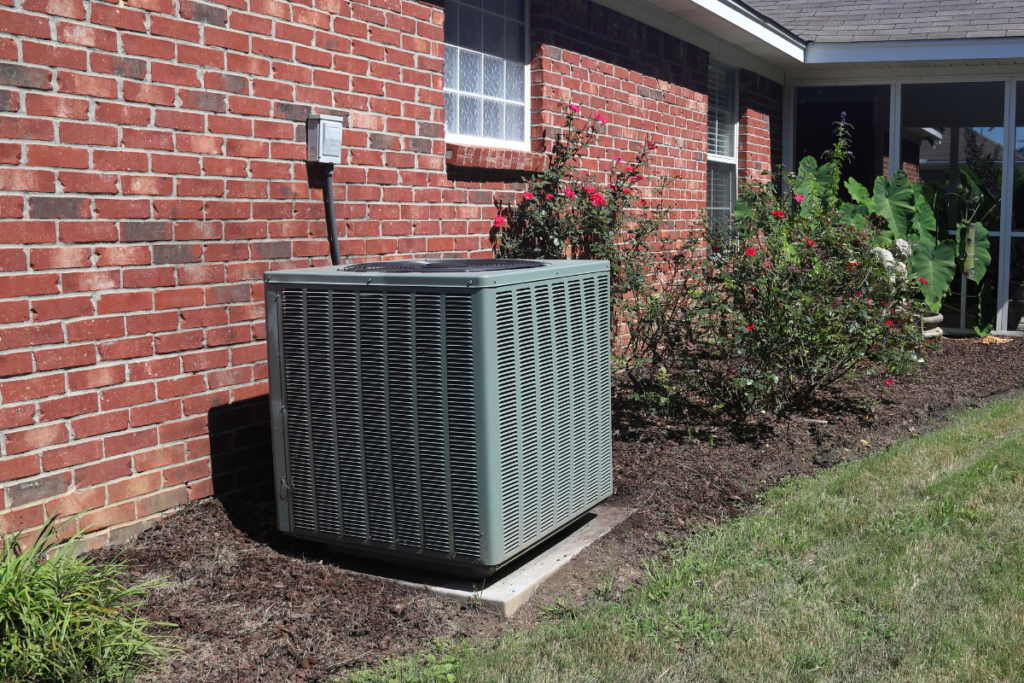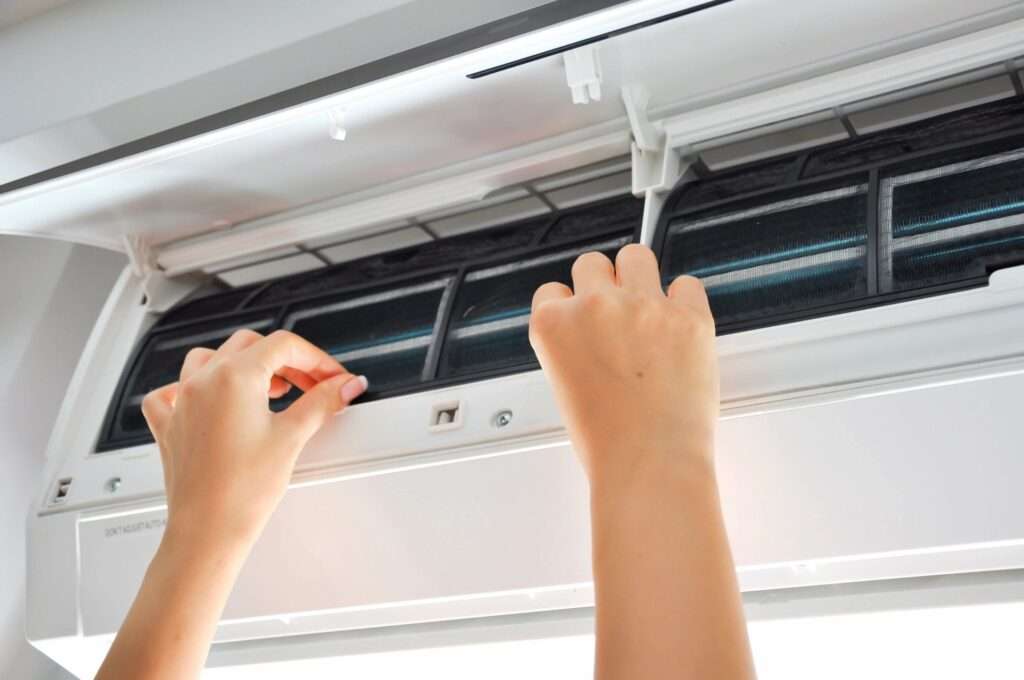
Essential HVAC Maintenance and Repair Tips for Homeowners
Table of Contents
1. Regularly Replace Your Air Filters
One of the simplest HVAC maintenance tasks is changing your air filters. Over time, air filters collect dust, allergens, and other particles, which can clog the filter and restrict airflow. Restricted airflow forces your HVAC system to work harder, reducing efficiency and potentially causing damage. To maintain optimal performance, it’s generally recommended to replace your air filters every 1 to 3 months, depending on your household’s needs. For homes with pets or residents with allergies, replacing filters monthly can significantly improve air quality.
Pro tip: Invest in high-quality filters that trap finer particles for enhanced indoor air quality.
2. Clean the HVAC Coils for Better Efficiency
The evaporator and condenser coils are crucial parts of your HVAC system, as they absorb heat and release cool air into your home. Over time, dust and dirt collect on these coils, reducing their ability to transfer heat effectively. Dirty coils make your HVAC system work harder, consuming more energy and reducing its lifespan. A simple way to maintain your system’s efficiency is by regularly cleaning the coils.
To clean the coils:
- Turn off the power to your unit.
- Use a soft brush or vacuum with a brush attachment to gently remove dust and debris.
- Avoid bending or damaging the coils.
Professional cleaning once a year is also a great way to keep these components in top condition.
3. Check and Calibrate Your Thermostat
Your thermostat controls the temperature and overall operation of your HVAC system. Ensuring that your thermostat is properly calibrated and functioning can help maintain consistent temperatures throughout your home. Check your thermostat regularly to ensure it’s level, dust-free, and in a convenient spot away from direct sunlight or drafts. Upgrading to a programmable or smart thermostat is another excellent way to improve energy efficiency and optimize your HVAC system.
With a smart thermostat, you can set temperature schedules, monitor usage, and even control your system remotely, all of which save energy and lower your bills.
4. Inspect Your Ductwork for Leaks and Debris
Your HVAC system’s ductwork is responsible for delivering conditioned air throughout your home. However, leaks or gaps in your ductwork can result in energy loss, uneven cooling or heating, and higher utility bills. Regularly inspect your ducts for any visible signs of wear, such as gaps, tears, or loose connections. Sealing leaks with mastic sealant or duct tape can improve efficiency. Additionally, hiring professionals to clean your ducts every few years helps improve airflow and enhances indoor air quality.
Quick tip: If you notice dust or debris around your vents, it may be time for a thorough duct cleaning.
5. Clean Around the Outdoor Unit
Your HVAC system’s outdoor unit, often called the condenser, plays a vital role in cooling your home. This unit can easily get obstructed by leaves, dirt, and debris, which reduces airflow and causes the system to overheat. For optimal HVAC maintenance, check the outdoor unit regularly and clear away any obstructions.
To maintain the area:
- Trim any shrubs or plants within two feet of the unit.
- Remove leaves, dirt, and other debris.
- Hose down the unit gently to wash away built-up dust (but only do this if the power is off).
Keeping this area clear improves airflow and enhances the system’s cooling capabilities.
6. Schedule Professional HVAC Maintenance Annually
Regular HVAC maintenance by a qualified technician is essential to keeping your system in peak condition. While many tasks are manageable for homeowners, certain components require expert inspection and maintenance. During an annual HVAC tune-up, a professional technician will:
- Inspect and clean coils.
- Lubricate moving parts.
- Check refrigerant levels.
- Test thermostat calibration.
- Inspect electrical connections.
Regular maintenance helps catch small issues before they become costly repairs. An annual tune-up ensures that your HVAC system is operating safely and efficiently, extending its lifespan and helping you avoid unexpected breakdowns.
7. Address Common HVAC Issues Before They Escalate
Every HVAC system will experience occasional issues, from strange noises to unexpected temperature changes. Here are some common problems and simple HVAC maintenance steps you can try before calling a professional:
- Uneven heating or cooling: Check for clogged vents or blocked ductwork. Make sure all vents are open and not obstructed by furniture.
- System not turning on: Ensure the thermostat is on the correct setting and check for a tripped circuit breaker.
- Unusual noises: Noises often indicate loose parts or debris in the system. Tighten screws and remove debris if visible.
Addressing minor issues promptly can prevent them from escalating into more serious and expensive repairs.

8. Clean and Clear Drain Lines
HVAC systems often produce condensation that drains away through a line. Over time, these lines can become clogged with dirt and mold, which can lead to water damage or cause your system to shut down. Periodically check the drain lines for clogs and clean them with a solution of vinegar and water to prevent blockages. Some systems also have a secondary drain pan to catch overflow, so make sure this is clear of debris as well.
Tip: A clean drain line reduces the risk of water damage and helps your system run more smoothly.
9. Know When to Repair or Replace
Sometimes, even with regular HVAC maintenance, repairs may not be enough to keep your system running efficiently. If your system frequently breaks down, has trouble maintaining temperatures, or is over 10-15 years old, it might be time to consider an upgrade. A new energy-efficient system can improve comfort, save on energy bills, and reduce the need for frequent repairs. Consulting with an HVAC professional will help you make the right choice for your home.
Pro tip: Modern HVAC systems are more efficient, quieter, and better for the environment, making them a worthwhile investment.
10. Improve Insulation to Reduce HVAC Load
Improving your home’s insulation reduces the workload on your HVAC system, which can enhance its lifespan and lower your energy bills. Proper insulation in your attic, walls, and floors keeps warm air in during the winter and out during the summer. Sealing windows and doors is another great way to maintain indoor temperatures without overloading your system.
11. Keep an HVAC Maintenance Log
Keeping track of your HVAC maintenance schedule helps you remember when you last changed filters, cleaned coils, or had a professional tune-up. Documenting maintenance dates and tasks also helps you anticipate upcoming needs and budget for potential repairs or replacements.
Diamond Handyman Service in Susanville, CA, is here to assist with all your HVAC maintenance needs. By following these essential HVAC maintenance tips, you can ensure your system’s performance, save on energy costs, and avoid unexpected breakdowns. Proper upkeep not only extends the lifespan of your HVAC system but also improves your home’s comfort and air quality. For HVAC maintenance or any other handyman needs, contact Diamond Handyman Service at 530-250-5382.
HVAC Maintenance Links Susanville, CA
